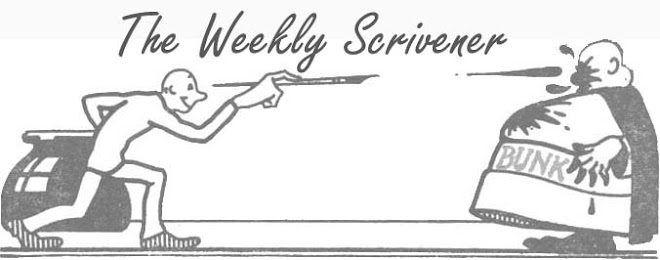I feel compelled to lay some economics on you. It is something that should be taught to every high school student, because it is an essential piece of our economy. However, what I am about to tell you is not general knowledge. And there is no reason why it should not be, as it is very, very easy to understand. That piece of hidden economics is that the currency in which a barrel of oil is measures is the US dollar. Okay, you might know that. You probably also know that how much we pay for a barrel of oil is based on how much oil producers charge us for that barrel. But did you also know that that final price tag is also determined by the value of the dollar. Thus, because oil is measured in dollars, every time the value of the dollar drops, the cost of oil goes up, not globally, but to those who use US dollars to buy oil. That is the little secret.
"What about Europe?" you ask, "Aren't they paying eight bucks for a gallon for gas.*" Well, technically they are, but if you convert that eight bucks to euros, they are paying about 5.4 euros per gallon. Two years ago they were paying about 5.1 euros a gallon. That two year price hike is little more than 1%. We are paying about 40% more than we did two years ago.**
While it is convenient for politicians of both parties to blame OPEC and say that they are "going to hold the Saudis accountable," the truth is that as long as the dollar is weak, not only will oil prices be high, but every other thing that is produced outside the US and imported for us to use will be more expensive. Yes, things like electronic equipment and clothing will be pricier. But that isn't all: Food prices will also climb (as they have been). Why? Over the last twenty years, we've become a major food importer. Many of our fruits, vegetables, and grains are imported. As a result, when the dollar's value drops, food prices go up.
Why is the dollar so weak? Well, there is no single answer (and if there was economists would come up with a rival theory). However, it is safe to say that the national debt, fighting a three trillion dollar war and funding it on credit, and the mess caused by deregulation of the financial services industry have some blame. Sober headed economists look at US fiscal policy and shake their heads, just as rational diplomats look at our foreign policy and wonder what the fuck we are doing. I think the cause is pretty easy to figure out. The solution? Not so easy, but I know one thing for sure, it ain't staying the course. Unfortunately, everything I hear from our presidential candidates avoids any of the stuff I just rattled off.
* First off, I know that Europeans measure gas in liters, but for sake of argument I am measuring in gallons. Second, they do pay about double what what pay for gas, but not for oil. A big percentage of what they pay at pump is taxes, taxes which go toward social services. They also drive cars that average 40 mph.
** If you adjust for inflation, we are actually paying about the same amount for a gallon of gas as we were in the early 1980s. What has gone up isn't the value of oil or gas, but inflation - something we have been brainwashed to believe that never happens any more, at least now until recently.
March 13, 2008
Subscribe to:
Post Comments (Atom)

No comments:
Post a Comment